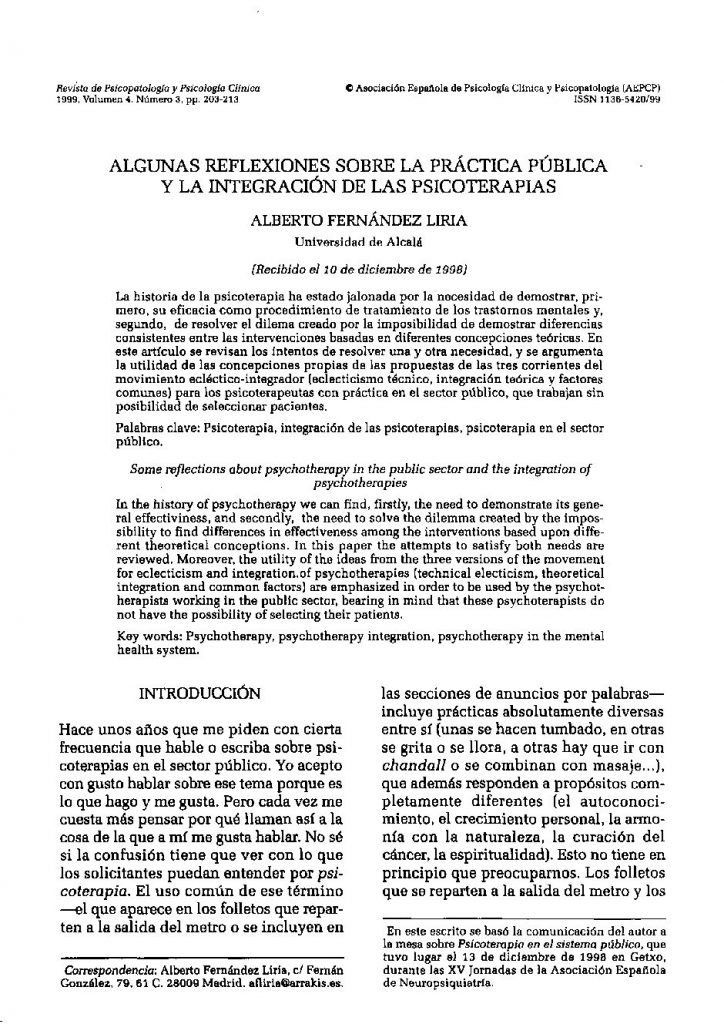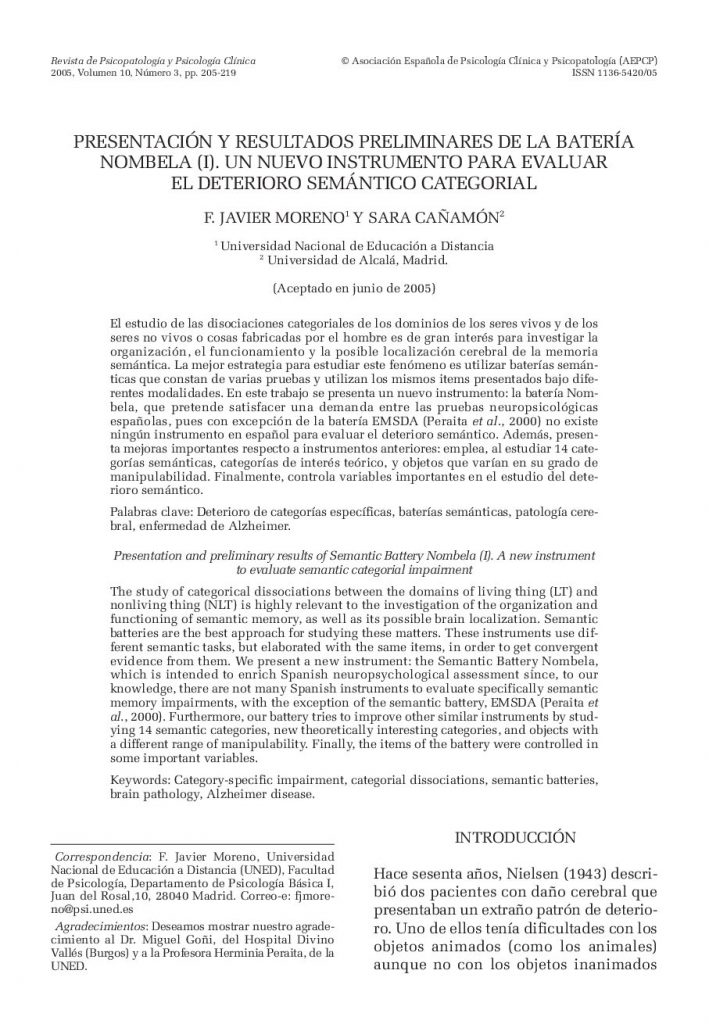Algunas reflexiones sobre la práctica pública y la integración de las psicoterapias.

- Estudio descriptivo y evaluación de una muestra de transeúntes marginados residentes en un centro de acogida.
- Burnout docente, sentido de la coherencia y salud percibida.
- Aproximaciones psicológicas al tratamiento de las esquizofrenias.
- Algunas reflexiones sobre la práctica pública y la integración de las psicoterapias.
In the history of psychotherapy we can find, firstly, the need to demonstrate its general effectiveness, and secondly, the need to solve the dilemma created by the impossibility to find differences in effectiveness among the interventions based upon different theoretical conceptions. In this paper the attempts to satisfy both needs are reviewed. Moreover, the utility of the ideas from the three versions of the movement for eclecticism and integration of psychotherapies (technical eclecticism, theoretical integration and common factors) are emphasized in order to be used by the psychotherapists working in the public sector, bearing in mind that these psychotherapists do not have the possibility of selecting their patients.
La historia de la psicoterapia ha estado jalonada por la necesidad de demostrar, primero, su eficacia como procedimiento de tratamiento de los trastornos mentales y, segundo, de resolver el dilema creado por la imposibilidad de demostrar diferencias consistentes entre las intervenciones basadas en diferentes concepciones teóricas. En este artículo se revisan los intentos de resolver una y otra necesidad, y se argumenta la utilidad de las concepciones propias de las propuestas de las tres corrientes del movimiento ecléctico-integrador (eclecticismo técnico, integración teórica y factores comunes) para los psicoterapeutas con práctica en el sector público, que trabajan sin posibilidad de seleccionar pacientes.




